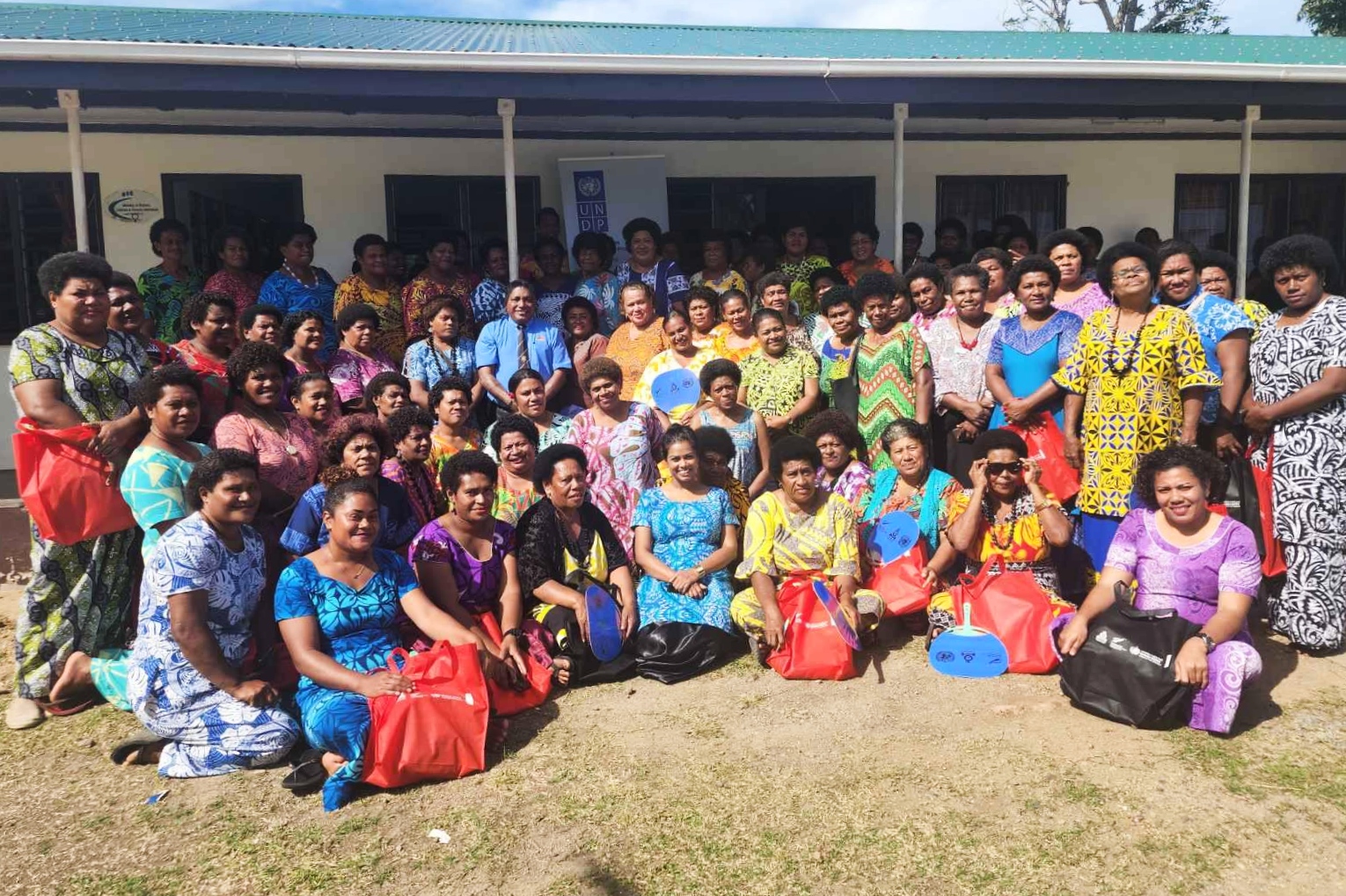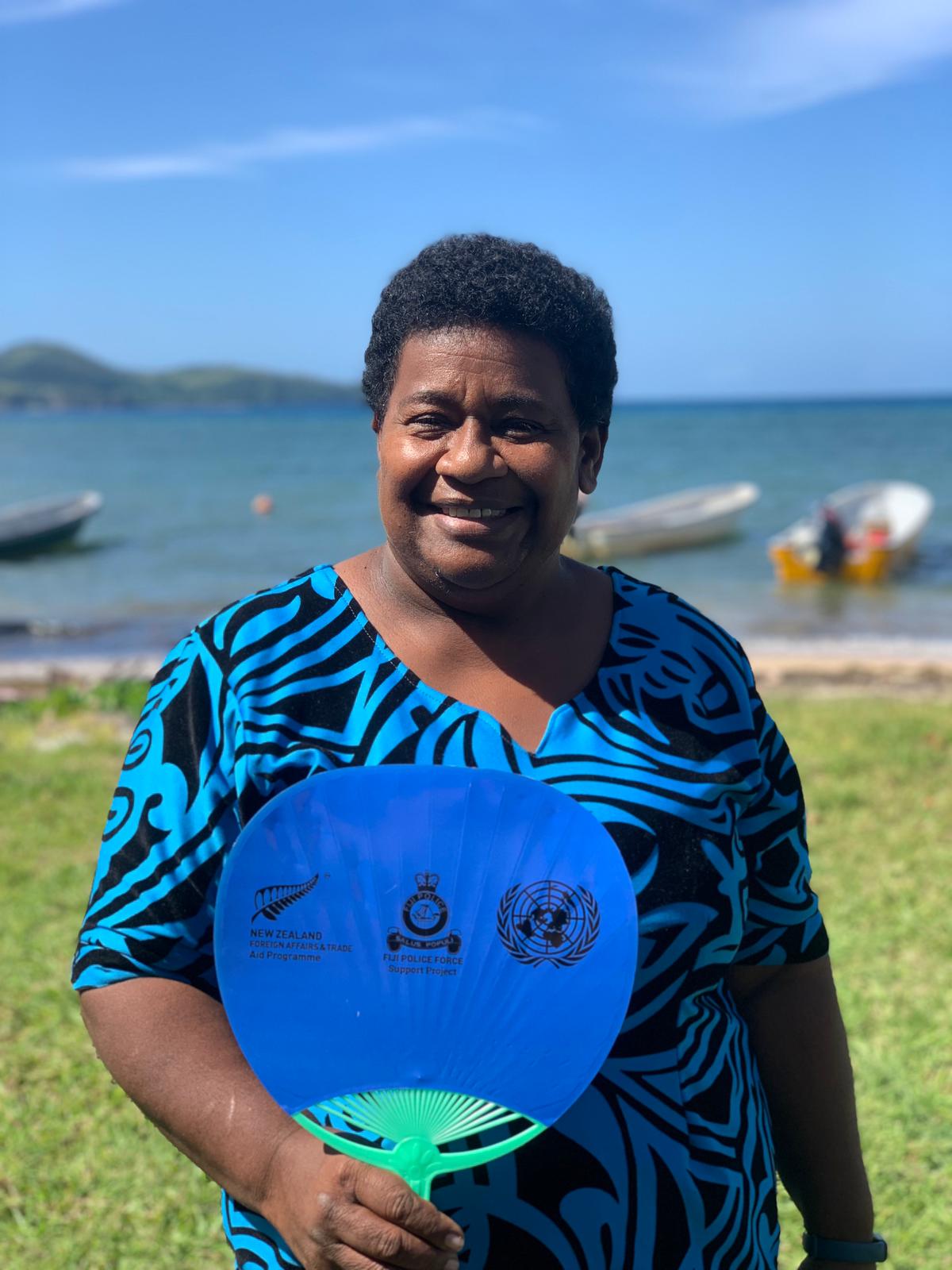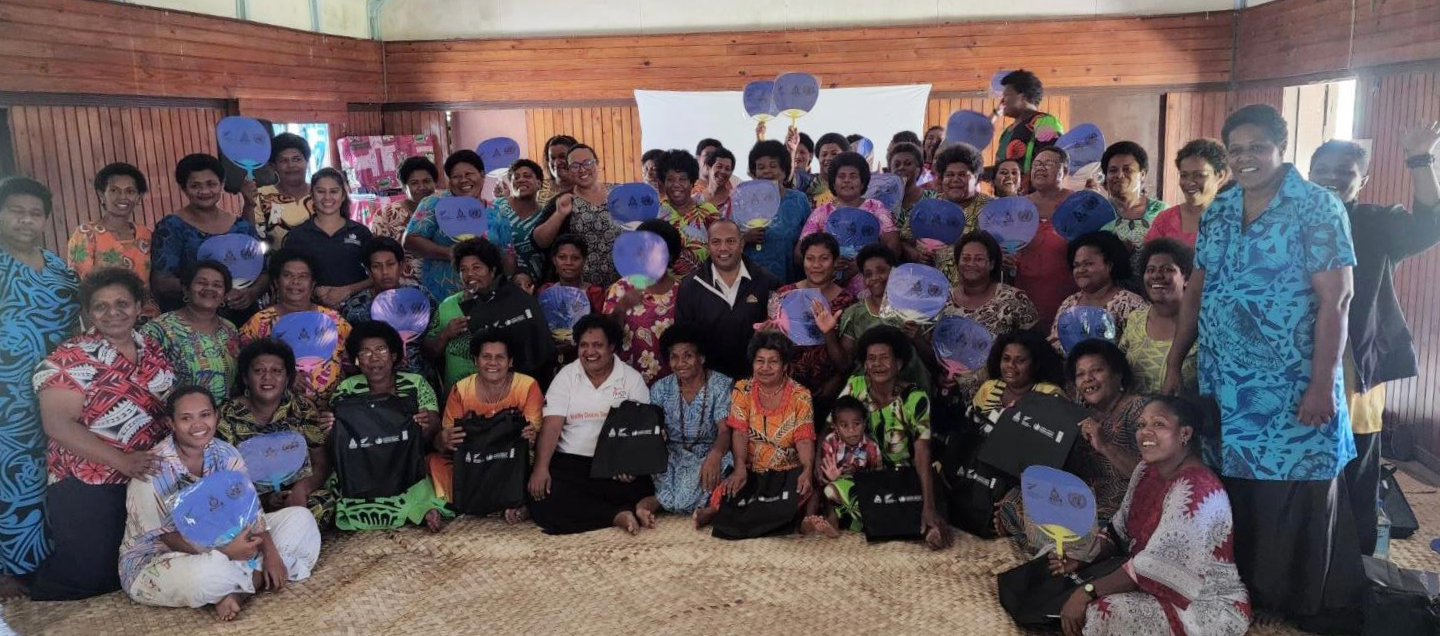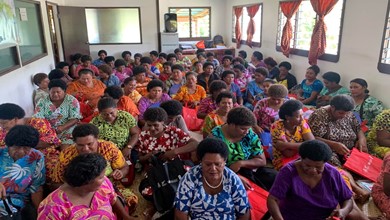Over 180 women meet in Kadavu for community consultations
September 16, 2022

Participants and facilitators for the community discussions in Vunisea Government Station, Kadavu.
Kadavu, Fiji – The United Nations Development Programme (UNDP) hosted a two-day community consultation with over 180 women with funding support provided by the Government of New Zealand. The community talanoa was facilitated under the Fiji Police Force Support Project and focused on enhancing knowledge and service delivery in remote locations on sexual gender-based violence, domestic violence, rape and child abuse.
The first day of consultation was held at Tiliva Village Hall with a gathering of 55 women from the northern part of Kadavu from the three remote districts of Nakasaleka, Yale and Ono. The second day of the consultation was held at the Vunisea Government station and concentrated efforts on hosting 127 women from the six districts of Tavuki, Nabukelevu, Ravitaki, Sanima, Naceva and Yawe.
The two-day consultation placed strong emphasis on informing women on the different support pathways that were available for survivors of sexual and gender-based violence.
It is important to recognize that SGBV cases in Kadavu are still a problem, and it is equally crucial to ensure that women in remote locations are equipped with basic information that can help them access police, medical and psychological support.
Ilisapeci Raiyawa, Head Teacher and local resident of Tiliva village, spoke of the need to adopt a whole of community approach by going household to household, sharing child friendly material with children in schools and training teachers on how to approach such cases if they were to come across it.
She said, “We live far from Suva so we need to rely on each other’s services to protect our women and children."

Ilisapeci Raiyawa.

Facilitators and participants to the Women’s talanoa at Tiliva Village Hall, Kadavu.
Women’s representatives from Kadavu were able to share their perspectives and experiences on how cases on sexual assault and domestic violence were processed and investigated. In addition, the ‘on the mat’ discussions sought to gather views on how survivors of sexual and gender-based violence were treated during the course of police investigations.
“We continue to adopt and promote for a survivor centered approach in the FPF – the way we talk and engage with survivors must be done with a human touch as we want to safeguard their physical and mental welling,” said Ilisapeci Waqerau of the Sexual Offence Unit.
Understanding the present bottlenecks that exists in the process of investigating sexual offences is key to enhancing the working relationships between FPP, key ministries and service provides that serve the communities in Kadavu. Key interventions such as community policing will be an important tool that can be used to strengthen the confidence and trust between authorities and the women of Kadavu.
Geographic isolation and network connectivity are some constraints that may delay the reporting and investigation of sexual offence cases at times.
Understanding these unique challenges is the first step to realizing how crucial inter-ministerial & agency collaboration is when serving in a remote location.
“At the end of the day, we are serving one Government and one people so we need a whole of Government – whole of sector approach if we would like to address sexual offence cases in Fiji and create a safe home for our mothers and children," emphasized Assistant Roko Wiliame Nayacatabu who played a key role in bringing all stakeholders together for the needed training.

Women gather to discuss SGBV, domestic violence, child abuse and rape.
Doctor Elizabeth Lal at Kavala Health Centre said that community awareness remains to be the biggest driver for ensuring all women are well informed of their rights and understand what to do and how to raise issues relating to sexual offences within the community.
Equally as important is the need to continue to train health workers so they understand the necessary documents, test kits and evidence that is needed for the investigation.
This initiative is a demonstration of stakeholder partnership between UNDP, Fiji Police Force, Medical Services Pacific, Empower Pacific, Ministry of Women Children & Poverty Alleviation, Ministry of Health & Medical Services, Office of the High Commission on Human Rights through special on-ground support provided by the Ministry of iTaukei Affairs, Ministry of Rural and Maritime Development and the Kadavu Provincial Office.
Rustam Pulatov, Project Manager for the UNDP Fiji Police Force Support Project said, “In the UN, we ensure that no one is left behind, and it means that whatever your circumstances, whatever your location, whatever your situation, it should not be an excuse to leave you behind.”

Dr. Elizabeth Lal.
“We will continue to collaborate closely with all key stakeholders to improve, sharpen and finalize recommendations on how best we can support survivors of sexual and gender-based violence in remote locations under the Fiji Police Force Support Project.”
Contact information:
Rustam Pulatov, Programme Manager, UNDP Pacific Office in Fiji. Phone: +679 3312500. Email: rustam.pulatov@undp.org

 Locations
Locations